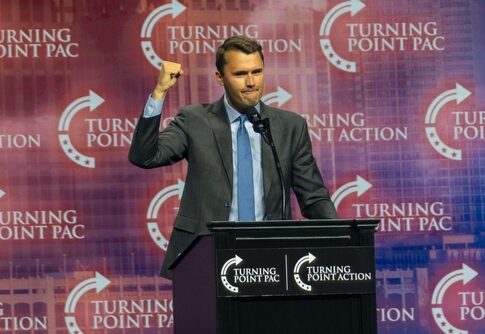A university network’s disturbing content sparks outrage, spotlighting the left’s campus influence.
University TV Network’s Controversial Credit
The University of Delaware’s student television station, STN49, is embroiled in controversy after airing a program credit that thanked “Charlie Kirk’s killer.” This occurred in late September 2025, just weeks after the assassination of Kirk, a notable conservative activist, at Utah Valley University. The network, advised by the university’s Communications Department, quickly deleted and reuploaded the episode without the offensive content following a public outcry and demands for accountability from political figures.
Political and Public Reactions
The Delaware Republican Party, led by Nick Miles, has been vocal in demanding a thorough investigation and accountability from the university. They argue that the incident reflects a broader pattern of left-wing bias and lack of oversight in academia. The GOP’s concerns are echoed by conservative media, which highlights the use of public university resources in producing the offensive content. As of October 2, 2025, the University of Delaware has not released an official statement regarding the incident.
🚨 PRESS RELEASE 🚨
The Delaware Republican Party is demanding accountability from the University of Delaware after its student-run television network, STN49, aired a program crediting “Charlie Kirk Killer” under faculty advisement and university funding. pic.twitter.com/KoMx4qagdV— Delaware Republican Party (@DelawareGOP) October 1, 2025
Despite the retraction, the incident has intensified debates over campus speech and the responsibilities of university-affiliated media. Critics argue that the incident underscores an urgent need for policy changes to prevent similar occurrences.
Implications for University Policy and Campus Climate
The controversy has put a spotlight on the University of Delaware’s policy regarding student media and faculty oversight. The incident raises questions about the boundaries of acceptable speech in academic settings and the role of satire in student media. The university faces potential reputational damage and the possibility of policy reforms aimed at tightening oversight on student-run media. Additionally, the incident has contributed to heightened political tensions on campus, affecting both conservative and liberal students.
Beyond the immediate fallout, this situation could have long-term implications for how universities across the nation handle similar controversies. It may prompt other institutions to reevaluate their policies on student-run media and the extent of faculty involvement in overseeing content. The incident serves as a cautionary tale of the balance needed between free expression and institutional responsibility.
Sources:
The Gateway Pundit (Cristina Laila)

